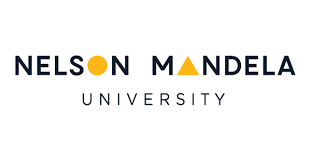Nelson Mandela University: Treating diabetes using the old ways
Diabetes is the second leading cause of death due to disease in SA, after tuberculosis. Finding ways to treat diabetes using indigenous knowledge about natural remedies has won Dr NehemiahLatolla of Nelson Mandela University a place on the world stage of science communicators.
Dr Latolla was chosen as FameLab SA 2022 winner during the national leg of the International FameLab science communication competition held on Monday evening, 17 October 2022. (See our September #R2bP story). As the national winner, he will represent South Africa in the International FameLab 2022 competition in November 2022.
During the FameLab South Africa Final, ten young scientists showcased research from some of the top academic and research institutes across the country in a way that non-experts can follow along and enjoy. The ten finalists each presented a three-minute talk about their research using props and simple language. The talks shared a glimpse into the lives of young researchers in South Africa and the impact that they hope to have through their studies and work. FameLab is the biggest international competition that seeks and supports science communication talent. This year marked the celebration of the 10th season of FameLab in South Africa.
Dr Latolla, a postgraduate researcher at Mandela University, charmed the judges with captivating storytelling skills and his passion for tapping into the wealth of SA’s indigenous knowledge about natural remedies to treat diabetes. His research in phytochemistry focuses on evaluating the safety and efficacy of natural products to treat diabetes. “SA has about 30 000 recorded plant species of which approximately 3 000 have the potential for medicinal use. However, there is a lack in the reported chemistry, safety, and efficacy of these medicinal plants,” according to Nehemiah.
First runner-up, Johanné Marais from the University of the Witwatersrand, seeks to address sleep deprivation due to HIV treatment with her sleep neurophysiology research. Second runner-up, Onesimo Mtintsilana, also from the University of the Witwatersrand, is a particle physicist and the student representative for the Women in Physics in SA Forum. Mtintsilana is also a tour guide at CERN (European Council for Nuclear Research) in Switzerland where she introduces people to this multinational particle physics research institute’s mission and achievements.
Finalist Tanya van Aswegen from Stellenbosch University talked about the influence of caregiver relationships on early childhood development; Nolwandle Khumalo from North-West University explained the important role that pollinators play in environmental health, while finalist Sohair Geyer-Benjamin of the Institute of Infectious Disease and Molecular Medicine at the University of Cape Town shared cutting edge research in the fight against TB.
In reaction to his win, Nehemiah said: “We truly had a team of great ideas and science communicators in the competition this year. I feel very honoured to be able to move forward and represent this group.” He expressed his gratitude to the organisers and his enthusiasm about competing alongside other country winners in the international competition. “I will give my best to showcase the richness of thought and innovation South African scientists have to offer,” said Nehemiah.
“I also strongly feel that as tax-funded researchers, we owe it to the tax-payer to communicate our science in an unambiguous way, as COVID-19 showed us how important it is for scientists (not politicians) to come forth and address the public on the sciences involved in any particular case,” said Nehemiah when asked about the importance of science communication. “I see FameLab as paramount in helping develop myself to effectively communicate with the communities I work with.” Read an interview with Nehmiah lower down on this page.
The judges for the final event, all experienced role-players in the South African science communication landscape, had no easy task in selecting the top contestant from the group of finalists this year. The FameLab competition offered all contestants the opportunity to hone their communication and presentation skills to engage the public with their research starting with training and participating during heats held at various institutions earlier this year. All contestants were encouraged to continue their new roles as ambassadors of their research and to find opportunities to talk about their research outside their academic spaces.
FameLab, an initiative of Cheltenham Festivals in the UK, has been running in South Africa since 2013 through a partnership between the South African Agency for Science and Technology Advancement (NRF-SAASTA) and research communication specialists, Jive Media Africa.

